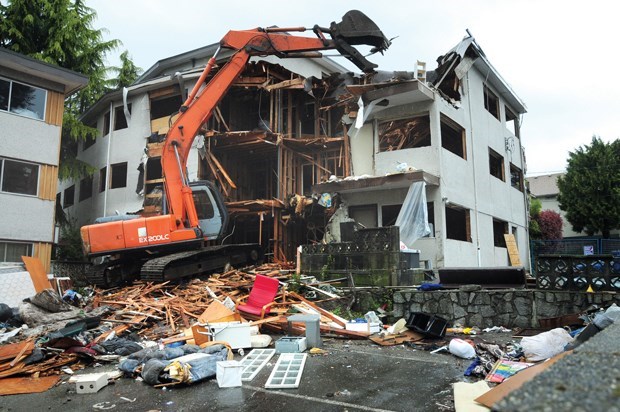Canada’s four major parties are engaged in a bidding war, hoping to find a home for voters impacted by the housing affordability crisis.
Burnaby North-Seymour New Democrat Jim Hanson said his party has the most ambitious target for new affordable homes – 500,000 non-profit, co-op, and social housing units, partly using federal lands and partnerships with local governments to create.
“Everyone should have a safe and affordable place to call home, so the NDP plan works on the premise that we need to create affordable housing for everyone,” he said. “There are federal lands in Burnaby North-Seymour, and there's also local government lands, and there's a need for federal investment and partnerships.”
As a member of District of North Vancouver council, Hanson has voted down fully funded affordable housing projects on district-owned land; however, Hanson said those were land-use decisions balancing the needs of the entire community against the benefits the projects would bring.
“None of that bears upon the fact that we need massive federal investment,” he said.
To make home ownership more affordable, the NDP is pledging a 20 per cent tax on purchases from foreign buyers in order to take speculative money out of the hot housing market, along with the return of 30-year terms for Canada Mortgage and Housing Corp. insured mortgages on entry-level homes and a doubling of the first-time home buyers' tax credit to $1,500.
West Vancouver-Sunshine Coast-Sea to Sky Country Conservative John Weston characterized the Tories’ plan as inducing more housing supply, backstopped by the belief that more government spending will only make the problem worse.
The Conservatives are pledging one million new homes. Partly, that would be done by taking 15 per cent of federally owned buildings and repurposing them for housing, but the party also says it will mandate denser housing be built near any federally funded transit.
“The federal government is out to encourage construction,” he said. “If you're going to fund public transit, then bring the housing near it.”
Both the Liberals and Conservatives are promising a two-year ban on foreign buyers, however, the Conservative plan would encourage foreign investment in the creation of new purpose-built rental housing, along with tax breaks for domestic investors who fund rental housing new builds.
Although the platform mainly looks to the creation of market housing, Weston did note the promise of $325 million over three years for 1,000 treatment beds for people facing addiction and homelessness.
“I'm just delighted about that. It shows the compassion side of conservatism that people want to see,” he said.
The Liberal platform includes a promise to “build, preserve or repair” 1.4 million homes, 100,000 of which should be built for middle-class households by 2024-'25.
Burnaby North-Seymour Liberal incumbent Terry Beech said he is particularly excited about his government’s promise to allow Canadians under 40 to save up to $40,000 tax-free for a down payment on their first home. Along with a reduction in CMHC insurance fees and a doubling of the first-time home buyers' tax credit, it should save $30,000 on the purchase of a starter home.
“In terms of impact on young individuals trying to get into the market for the first time, this will be significant,” he said.
Other promises in the platform include a ban on blind bidding in real estate, an anti-flipping tax on properties held for less than a year, new taxes on homes left vacant by foreign owners, and pressure on owners and cities to develop underused land in urban centres.
Beech conceded that housing prices have only gone higher in recent years, but he said every party’s housing platform now builds on the National Housing Strategy his government put into place.
“We are definitely in a better position to address the problem,” he said. “Our government is now permanently in the housing game. That certainty is going to allow non-profits, municipalities and other organizations to really plan for the future, and that's really going to speed up the supply of housing.”
So far, the party that has released the fewest detailed plans for housing is the Green Party, but North Vancouver candidate Archie Kaario said he believes the government should get back to funding the creation of housing co-ops.
“It’s one of the most effective ways of not only funding housing for people that are in a low-income area, but it's a way of building community as well,” he said.
Beyond that, Kaario said the federal government has a responsibility to create more housing for urban Indigenous people along with 50,000 units of new supportive housing and another 100,000 below-market units for people who cannot afford to participate in quasi-market housing like co-ops.
As a lawyer, Kaario said he was troubled by the other parties’ unrealistic promises to do things that are clearly outside federal jurisdiction – like banning foreign buyers and unilaterally enforcing rezoning.



